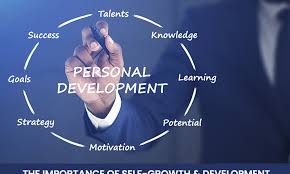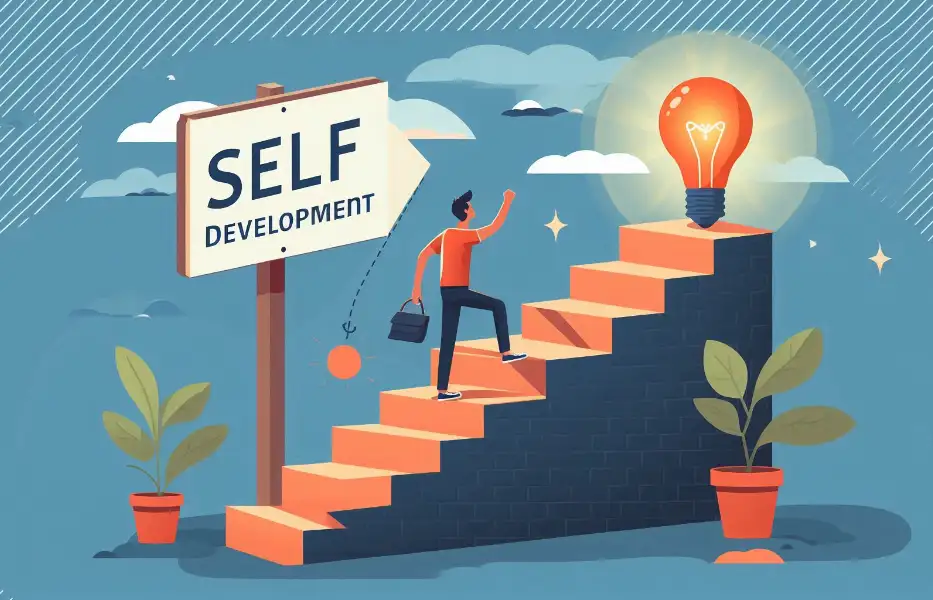Personal growth, also known as personal development, refers to the ongoing process of improving oneself in various areas of life. It encompasses physical, emotional, intellectual, and social dimensions, allowing individuals to achieve their goals, enhance their quality of life, and fulfill their potential. This journey is not a one-time event but a continuous effort to learn, adapt, and evolve.
Personal growth involves recognizing areas that require improvement, setting realistic goals, and taking actionable steps toward achieving them. It is a self-driven process that requires introspection, resilience, and a commitment to change. While it is unique for every individual, certain universal principles guide the path to personal.
The Importance of Personal Growth

Personal growth plays a crucial role in shaping an individual’s character and capabilities. It enables people to overcome challenges, build stronger relationships, and contribute positively to their communities. Here are some key benefits of personal:
- Increased Self-Awareness
Personal growth begins with self-awareness, which is the ability to understand one’s thoughts, emotions, and behaviors. This awareness helps individuals identify their strengths and weaknesses, paving the way for meaningful changes. - Enhanced Emotional Resilience
Developing emotional resilience is a significant aspect of personal growth. It allows individuals to cope with adversity, manage stress, and bounce back from setbacks. - Improved Relationships
Personal growth fosters better communication, empathy, and understanding, which are essential for building and maintaining healthy relationships. - Greater Confidence and Self-Esteem
As individuals achieve their personal goals and overcome challenges, their confidence and self-esteem naturally increase. - Professional Development
Personal growth often leads to professional success, as it enhances skills such as time management, problem-solving, and decision-making.
Key Areas of Personal Growth
Personal growth can take many forms, depending on an individual’s goals and priorities. Here are some key areas where people often focus their efforts:
- Emotional Development
Emotional growth involves understanding and managing emotions effectively. It includes developing emotional intelligence, which encompasses self-awareness, self-regulation, motivation, empathy, and social skills. Practicing mindfulness, seeking therapy, or engaging in reflective activities can support emotional development. - Physical Well-being
Taking care of one’s physical health is a foundational aspect of personal. This includes maintaining a balanced diet, engaging in regular exercise, getting adequate sleep, and managing stress. A healthy body often leads to a healthier mind, enhancing overall well-being. - Intellectual Growth
Intellectual growth involves expanding one’s knowledge, skills, and creativity. This can be achieved through formal education, reading, taking courses, or engaging in stimulating conversations. Staying curious and open to new ideas fosters continuous learning and adaptability. - Social Skills
Improving social skills is essential for building meaningful relationships and succeeding in various aspects of life. This includes effective communication, active listening, conflict resolution, and teamwork. Developing these skills can enhance personal and professional interactions. - Spiritual Growth
Spiritual growth focuses on finding purpose and meaning in life. This does not necessarily involve religion but may include meditation, connecting with nature, or exploring philosophical ideas. Spiritual growth helps individuals align their actions with their values and beliefs.
Barriers to Personal Growth

Despite its importance, personal can be hindered by various challenges. Recognizing and addressing these barriers is critical for progress:
- Fear of Failure
Fear of failure often prevents individuals from stepping out of their comfort zones and pursuing their goals. Embracing failure as a learning opportunity is essential for growth. - Lack of Self-Discipline
Personal growth requires consistent effort and discipline. Procrastination and a lack of motivation can derail progress. - Negative Mindset
A negative mindset, characterized by self-doubt and pessimism, can limit an individual’s potential. Cultivating a positive outlook and practicing gratitude can counter these tendencies. - External Influences
Social pressures, toxic relationships, or unsupportive environments can impede personal growth. Surrounding oneself with positive influences is vital for success.
Strategies for Personal Growth
Achieving personal growth requires deliberate actions and strategies. Here are some effective approaches:
Setting Clear Goals
Defining specific, measurable, achievable, relevant, and time-bound (SMART) goals provides a clear direction for personal. These goals should align with an individual’s values and aspirations.
Embracing Lifelong Learning
Personal growth is fueled by continuous learning. Staying curious, seeking knowledge, and being open to new experiences are crucial for self-improvement.
Practicing Self-Reflection
Regular self-reflection allows individuals to assess their progress, identify areas for improvement, and celebrate achievements. Journaling or meditating can facilitate this process.
Seeking Feedback

Constructive feedback from trusted friends, mentors, or colleagues provides valuable insights for personal growth. It helps individuals identify blind spots and refine their strategies.
Developing a Growth Mindset
Adopting a growth mindset, which emphasizes the belief yowestogel that abilities can be developed through effort and learning, fosters resilience and adaptability. This mindset encourages individuals to view challenges as opportunities.
Building Healthy Habits
Habits play a significant role in shaping behavior. Developing healthy routines, such as regular exercise, mindful eating, or consistent study, supports long-term personal.
Practicing Gratitude and Positivity
Focusing on the positive aspects of life and expressing gratitude improves mental well-being and fosters a sense of contentment. These practices contribute to a more optimistic outlook.
The Role of Support Systems
Personal growth is often easier to achieve with the support of others. Family, friends, mentors, and professional networks can provide encouragement, guidance, and accountability. Building strong support systems enhances the journey and helps individuals overcome obstacles.
Measuring Personal Growth
Tracking progress is essential for sustaining motivation and achieving personal growth. Reflecting on milestones, revisiting goals, and celebrating achievements allow individuals to recognize their improvements and stay on course.
The Journey of Personal Growth
Personal is a lifelong journey that evolves with changing circumstances, goals, and priorities. It requires patience, perseverance, and a commitment to self-improvement. By embracing challenges, staying resilient, and celebrating small victories, individuals can unlock their full potential and lead fulfilling lives.





